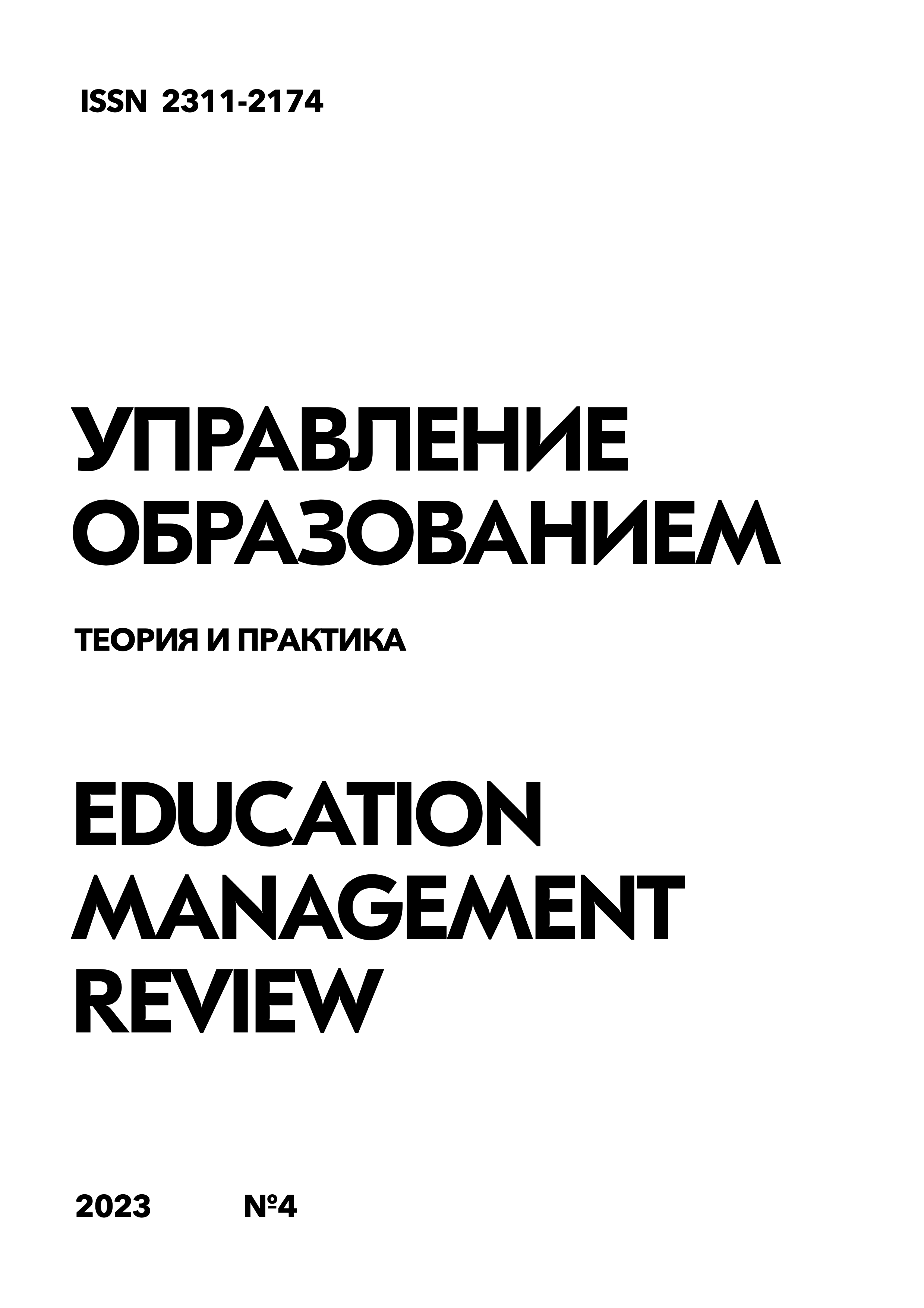Functional Literacy in Retrospect and Perspective: Problem–Historical Analysis of Foreign Sources
DOI:
https://doi.org/10.25726/v3039-0555-6987-iKeywords:
functional literacy, education, educationvocational education, scientific problem, educational outcomeAbstract
The purpose of the article is to consider the retrospective and perspective of the study of the problem of functional literacy in foreign sources. Following the typology of scientific problems, the paper describes development of points of view on the concept of "functional literacy" in the XX–XXI centuries. At the first stage, the problem of the existence of functional literacy as phenomenon was discussed, at the second stage, discussions were built around description and classification; the third stage presents different approaches to the consideration of functional literacy; at the fourth stage, the patterns of development of functional literacy, development prospects were studied. Currently, research is of an applied nature; the investigation is followed by a reflexive stage with a discussion of the issues of achieving the goal in science and practice. The term “functional literacy” was early applied to adults and youth, often migrants and foreign employees. At present, the question of the formation of functional literacy of children is being raised. The problem is significant due to its connection with the economy, politics, ideology, and the social sphere. Turning to foreign sources is important in the context of globalization and localization.
References
Бекмаганбетова Д.Т. Сисалиева А.Р. Lesson Study: Оқушылардың функциональдық сауаттылығын графикалық оқу жəне есептерді практикалық қолдану арқылы қалай дамытуға болады // Молодой ученый. 2021. No 23(365). С. 509–511.
Ермоленко В.А. Развитие функциональной грамотности обучающегося: теоретический аспект // Пространство и время (альманах). 2015. Т. 8. Вып. 1: Пространство и время образования. 2227– 9490e–aprovr_e–ast8–1.2015.12.
Жлудова Н.С. Опыт исследования функциональной грамотности у старшеклассников с интеллектуальной недостаточностью в контексте функционального подхода // Повышение качества образования в условиях поликультурного социума: Сборник статей. Витебск: Витебский государственный университет им. П.М. Машерова, 2017. С. 204–208.
Новиков А.М., Новиков Д.А. Методология научного исследования. М.: Либроком, 2010. 280 с..
Прытков В.П. Структура научной проблемы // Теория и практика общественного развития. 2013. №1.
Прытков В.П. Познавательные функции и типология научных проблем // Теория и практика общественного развития. 2013. №5.
Bulajic Aleksandar & Despotovic Miomir & Lachmann Thomas. Zeitschrift für Neuropsychologie. 30. Р. 109–122. 10.1024/1016–264X/a000255. URL: https://www.researchgate.net/publication/333470256_Understanding_functional_illiteracy_from_a_policy_adult _education_and_cognition_point_of_view_Towards_a_joint_referent_framework.
Cencelj Zvonka & Abersek Metka & Abersek Boris & Flogie Andrej. Role and meaning of functional science, technological and engineering literacy in problem–based learning // Journal of Baltic Science Education. 2019. 18. Рp. 132–146. 10.33225/jbse/19.18.132. URL: https://www.researchgate.net/publication/331093165_Role_and_meaning_of_functional_science_technologica l_and_engineering_literacy_in_problem–based_learning/.
International Baccalaureate Organization. – URL: https://ibo.org/about–the–ib/.
Kani N. B. Influence of functional literacy on education // Kazakhstan Science Journal. 2020. Vol. 3. No 7(20). Pp. 31–39.
Kozhanova K. T. Компетентностный подход в образовании как основа формирования функциональной грамотности школьников // Вестник "Өрлеу" – kst. 2014. No 4(6). Pp. 139–143. URL: https://www.elibrary.ru/item.asp?id=34901008.
Lineo Rose Johnson Cultural and social uses of orality and functional literacy: A narrative approach. Reading & Writing. 2016. 7. 10.4102/rw.v7i1.119. – URL: https://www.researchgate.net/publication/309470065_Cultural_and_social_uses_of_orality_and_functional_lite racy_A_narrative_approach.
Mukan N., Fuchyla O. Functional literacy learning in the system of adult education in belgium. Advanced Education. 2016. № 12. Рp. 34–39. 10.20535/2410–8286.76533. URL: https://www.researchgate.net/publication/311976642_Functional_literacy_learning_in_the_system_of_adult_e ducation_in_belgium.
O'Donnell Angela M., Dansereau Donald F., Rocklin Thomas, Hythecker Velma I. and Young Michael D., Hall Richard H., Skaggs Lisa P., and Lambiotte Judith G. Promoting functional literacy through cooperative learning // Journal of Reading Behavior, 1988. Volume XX. No. 4. Рp. 339–356.
Owada K., Nielsen M., Lau Colleen L, Yakob L., Clements Arhcee C.A., Leonardo L. et al. (2019) Functional illiteracy burden in soil–transmitted helminth (STH) endemic regions of the Philippines: An ecological study and geographical prediction for 2017. PLoS Negl Trop Dis 13(6): e0007494. – URL: https://journals.plos.org/plosntds/article?id=10.1371/journal.pntd.0007494.
Perry K.H., Shaw D.M., Ivanyuk L., Tham Y.S.S. The ‘Ofcourseness’ of Functional Literacy: Ideologies in Adult Literacy // Journal of Literacy Research. 2018; 50(1). Рp. 74–96. URL: https://journals.sagepub.com/doi/10.1177/1086296X17753262.
The Potentials of K–12 Literacy Development in the International Baccalaureate PYP and MYP. Final Report. Submitted by the University of Canberra team: Dr Misty Adoniou, Dr Grette Toner and Professor Moosung Le. Canberra, 2016. 299 p.
UNESCO Institute for Statistics. URL: http://tcg.uis.unesco.org/wp– content/uploads/sites/4/2020/08/Metadata–4/




